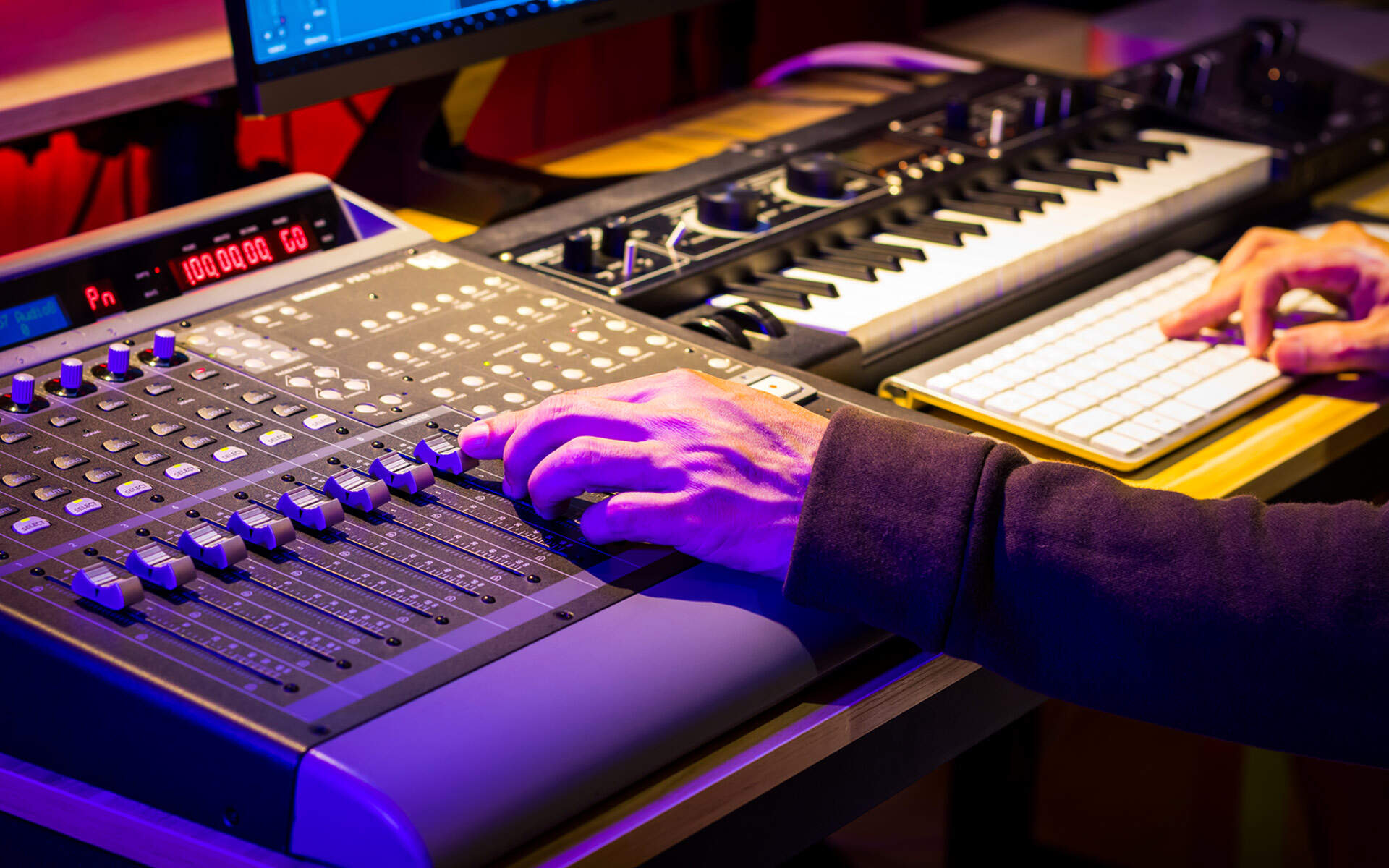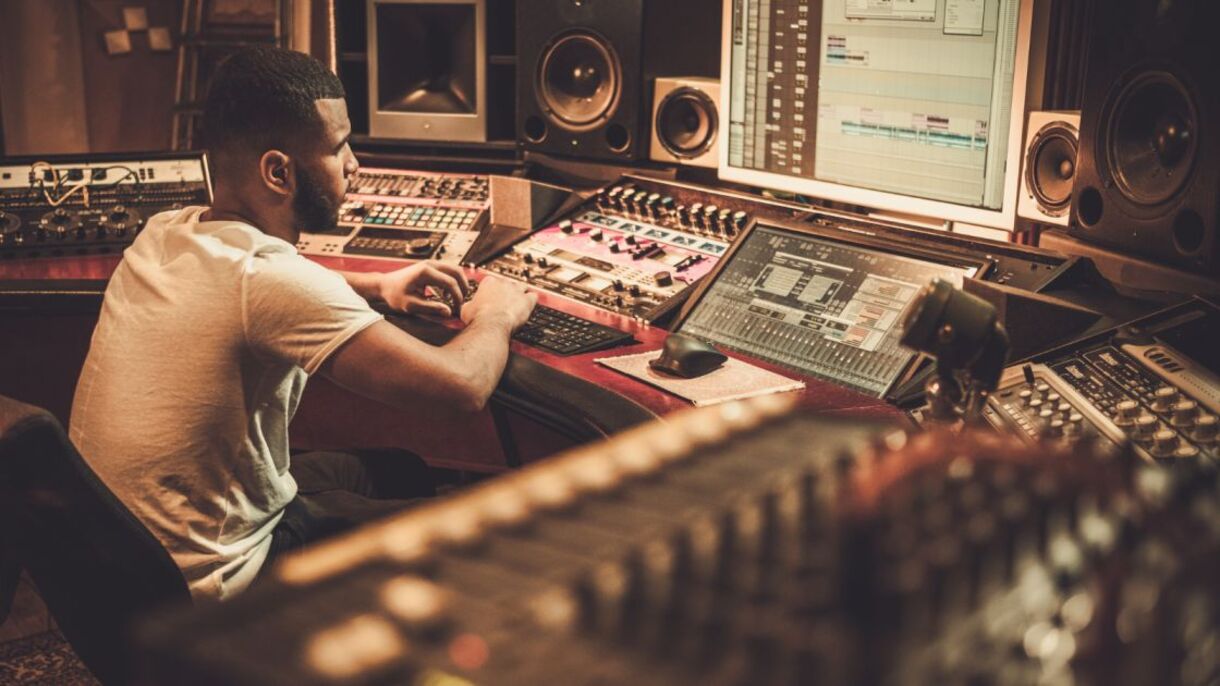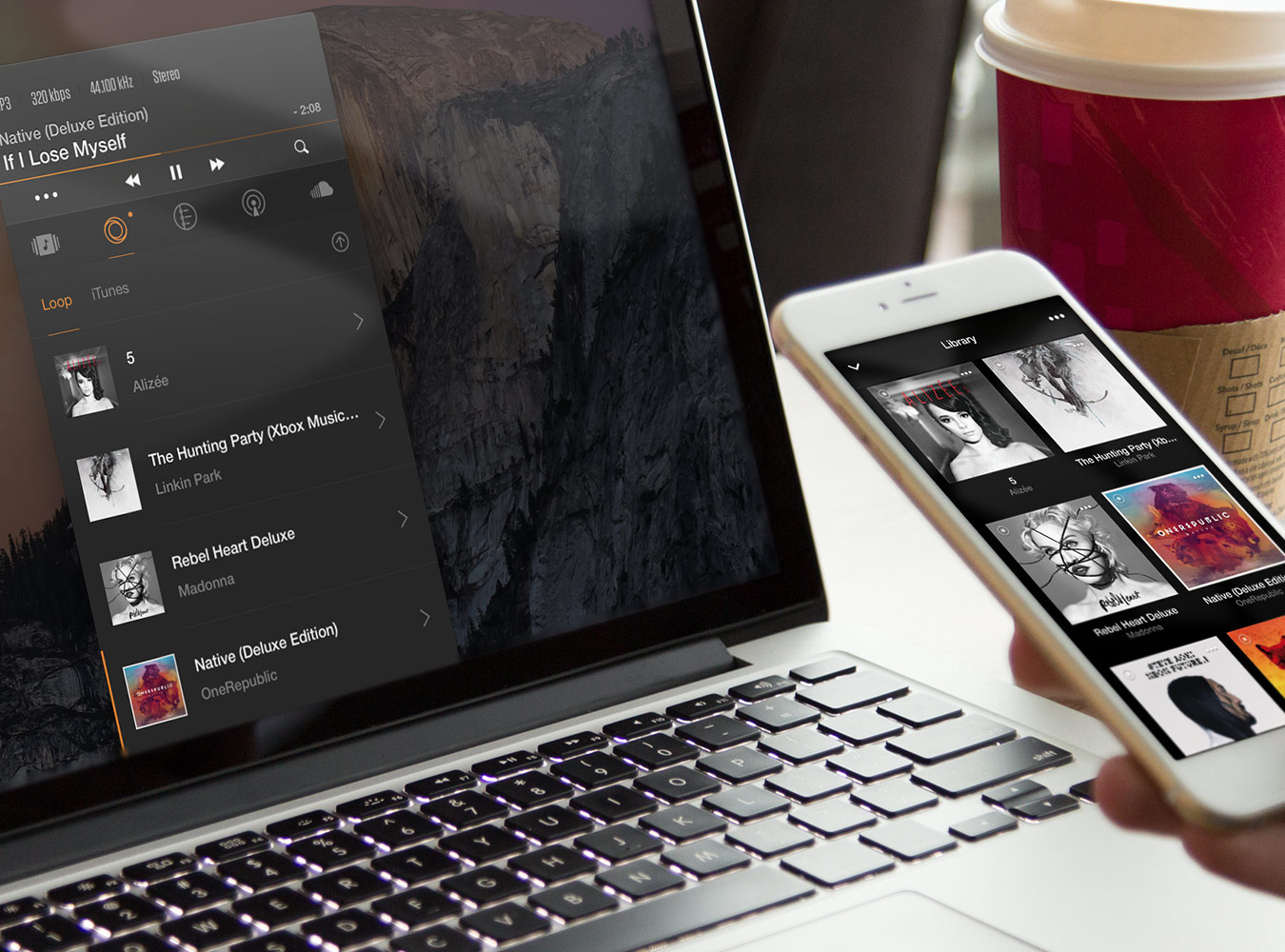Home>Production & Technology>Producer>How To Learn To Be A Music Producer


Producer
How To Learn To Be A Music Producer
Published: March 6, 2024
Learn the essential skills and techniques to become a successful music producer. Discover the secrets of producing music and creating your own unique sound. Unlock your potential as a music producer today!
(Many of the links in this article redirect to a specific reviewed product. Your purchase of these products through affiliate links helps to generate commission for AudioLover.com, at no extra cost. Learn more)
Table of Contents
- Introduction
- Understanding the Basics of Music Production
- Developing Your Musical Skills
- Learning the Technical Aspects of Music Production
- Studying Successful Music Producers
- Building Your Own Home Studio
- Networking and Collaborating with Other Musicians
- Experimenting and Finding Your Unique Style
- Seeking Feedback and Continuous Improvement
- Conclusion
Introduction
Becoming a music producer is an exciting journey that allows you to bring your creative vision to life and shape the sound of the music industry. Whether you're a budding musician with a passion for production or an aspiring producer eager to dive into the world of music creation, learning the art of music production can be a rewarding and fulfilling experience.
As a music producer, you play a pivotal role in the music-making process, overseeing the creation and development of songs from start to finish. From crafting melodies and arranging compositions to mixing and mastering tracks, your influence as a producer can profoundly impact the final outcome of a musical piece.
In today's digital age, the opportunities for aspiring music producers are endless. With the accessibility of production software, online tutorials, and collaborative platforms, learning the ropes of music production has never been more achievable. However, mastering the craft of music production requires dedication, creativity, and a willingness to continuously learn and adapt to the ever-evolving landscape of the music industry.
In this comprehensive guide, we will explore the essential steps and strategies to help you learn the art of music production and embark on a fulfilling journey of creativity and self-expression. Whether you're a novice enthusiast or a seasoned musician looking to expand your skill set, this guide will provide valuable insights and practical tips to guide you through the intricacies of music production.
Throughout this journey, you will delve into the fundamental principles of music production, refine your musical skills, explore the technical aspects of production, draw inspiration from successful music producers, and establish your own creative space to bring your musical visions to life. Additionally, you will discover the importance of networking and collaboration, the significance of experimentation and self-discovery, and the value of seeking feedback to continually refine and enhance your production prowess.
By immersing yourself in the world of music production and embracing the challenges and triumphs that come with it, you will unlock a realm of endless possibilities and carve your own unique path in the vibrant tapestry of the music industry. So, let's embark on this exhilarating journey together and uncover the secrets to becoming a skilled and visionary music producer.
Understanding the Basics of Music Production
Music production is a multifaceted discipline that encompasses various elements essential to the creation of high-quality music. To embark on a successful journey as a music producer, it is crucial to gain a comprehensive understanding of the foundational aspects of music production. By familiarizing yourself with the fundamental principles and components of music production, you can lay a solid groundwork for honing your skills and unleashing your creative potential.
At the core of music production lies the art of arrangement and composition. Understanding musical structures, chord progressions, and song arrangements forms the bedrock of a producer's ability to craft captivating and cohesive musical pieces. By delving into the intricacies of melody, harmony, and rhythm, you can develop a keen sense of musical arrangement, enabling you to shape and mold compositions that resonate with listeners on a profound level.
Moreover, a deep comprehension of sound design and audio engineering is indispensable for any aspiring music producer. Familiarizing yourself with sound synthesis, sampling techniques, and audio processing equips you with the technical know-how to manipulate and sculpt sounds, thereby creating distinctive sonic landscapes that define your unique production style.
Furthermore, mastering the art of mixing and mastering is pivotal in ensuring the sonic integrity and clarity of your music. Learning the nuances of equalization, compression, and spatial effects empowers you to polish and refine the sonic attributes of your productions, elevating them to professional standards and captivating your audience with a pristine auditory experience.
In addition to technical prowess, understanding the role of technology in music production is essential. Embracing digital audio workstations (DAWs), virtual instruments, and production software enables you to harness the power of cutting-edge tools and unleash your creative potential in the digital realm.
By immersing yourself in the foundational aspects of music production, you lay a sturdy groundwork for your journey as a music producer. Embrace the intricacies of musical arrangement, delve into the realm of sound design and audio engineering, and harness the potential of technology to unleash your creative vision. With a solid understanding of these foundational elements, you are poised to embark on a transformative odyssey of music production, brimming with boundless opportunities for artistic expression and sonic innovation.
Developing Your Musical Skills
Developing proficiency in musical skills is a pivotal aspect of becoming a proficient music producer. Mastery of musical instruments, such as the piano, guitar, or drums, provides a solid foundation for understanding musical theory, composition, and arrangement. As a music producer, having a strong command of musical instruments not only enhances your creative capabilities but also enables you to communicate effectively with musicians and contribute meaningfully to the musical production process.
Moreover, honing your skills in music theory and composition empowers you to comprehend the intricate language of music and apply theoretical concepts to your creative endeavors. Understanding scales, modes, chord progressions, and musical forms equips you with the knowledge to craft harmonically rich and melodically compelling compositions, elevating the quality and depth of your productions.
In addition to instrumental proficiency and theoretical knowledge, developing a keen ear for music is indispensable for any aspiring music producer. Training your ear to discern nuances in pitch, timbre, and rhythm allows you to perceive and appreciate the intricacies of musical elements, thereby enhancing your ability to craft captivating and sonically engaging compositions.
Furthermore, embracing the art of improvisation and musical experimentation nurtures your creativity and fosters a spirit of innovation in your musical productions. Engaging in improvisational exercises, exploring diverse musical genres, and pushing the boundaries of conventional musical norms enable you to cultivate a rich and diverse musical palette, infusing your productions with ingenuity and originality.
By dedicating time and effort to developing your musical skills, you lay a robust groundwork for your journey as a music producer. Embrace the art of musical instrumentation, delve into the depths of music theory and composition, refine your auditory acuity, and foster a spirit of musical exploration and experimentation. As you cultivate and enhance your musical prowess, you pave the way for a transformative odyssey of music production, brimming with opportunities for artistic expression and sonic innovation.
Learning the Technical Aspects of Music Production
Mastering the technical aspects of music production is essential for aspiring music producers aiming to craft professional-grade compositions and elevate their creative endeavors. Delving into the intricacies of sound engineering, audio processing, and digital tools equips producers with the expertise to bring their musical visions to life with precision and finesse.
Understanding sound engineering forms the cornerstone of technical proficiency in music production. Familiarizing oneself with the principles of acoustics, signal flow, and audio signal processing lays the groundwork for manipulating and shaping sound to achieve desired sonic characteristics. This knowledge enables producers to harness the potential of various audio processing techniques, such as equalization, compression, and reverb, to sculpt and refine the sonic attributes of their compositions.
Furthermore, gaining proficiency in utilizing digital audio workstations (DAWs) empowers music producers to leverage cutting-edge technology in their creative pursuits. Learning the ins and outs of DAWs, virtual instruments, and production software enables producers to harness a myriad of tools and functionalities, facilitating seamless music creation, arrangement, and mixing within a digital environment.
Moreover, delving into the realm of sound synthesis and sampling techniques enables producers to craft unique and innovative sonic textures, expanding the sonic palette at their disposal. By exploring the intricacies of synthesizers, samplers, and sound manipulation tools, producers can infuse their compositions with distinctive and captivating sounds, adding depth and character to their musical productions.
Additionally, understanding the technical aspects of mixing and mastering is paramount for achieving professional-grade sonic quality in music production. Learning the nuances of spatial effects, dynamic processing, and mastering techniques allows producers to refine and enhance the sonic integrity of their compositions, ensuring a polished and cohesive auditory experience for their audience.
By immersing themselves in the technical aspects of music production, aspiring producers gain the expertise to navigate the intricacies of sound engineering, digital tools, and audio processing, empowering them to realize their creative visions with technical precision and artistry. Embracing the fusion of creativity and technical proficiency, producers embark on a transformative journey of sonic innovation, equipped with the knowledge and skills to craft compelling and impactful musical compositions.
Studying Successful Music Producers
Studying the achievements and methodologies of successful music producers offers invaluable insights into the art and science of music production. By immersing oneself in the works and philosophies of renowned producers, aspiring music producers can glean inspiration, learn from their approaches, and assimilate the principles that have propelled these luminaries to the pinnacles of the music industry.
Exploring the discographies of iconic music producers, such as Quincy Jones, Dr. Dre, Rick Rubin, and Max Martin, provides a profound understanding of their diverse production styles, sonic innovations, and the transformative impact they have had on the music landscape. By dissecting their productions across various genres, aspiring producers can unravel the intricacies of their creative processes, arrangement techniques, and sonic signatures, gaining a deeper appreciation for the artistry and innovation that define their work.
Furthermore, delving into the biographies and interviews of successful music producers unveils the stories behind their rise to prominence, their artistic philosophies, and the challenges they overcame in their careers. Understanding the professional trajectories and creative philosophies of these luminaries offers invaluable lessons in resilience, adaptability, and the relentless pursuit of artistic excellence, inspiring aspiring producers to navigate their own journeys with determination and purpose.
Studying successful music producers also entails examining their collaborations with artists, songwriters, and fellow producers, shedding light on the dynamics of creative partnerships and the symbiotic relationships that underpin successful music production endeavors. By analyzing the collaborative dynamics and creative synergies that have yielded timeless musical masterpieces, aspiring producers gain insights into the power of teamwork, open-mindedness, and the alchemy of creative collaboration.
Moreover, exploring the production techniques and innovations pioneered by successful music producers provides a window into the evolution of production methodologies and technological advancements that have shaped the modern music landscape. From groundbreaking production approaches to pioneering the use of new instruments and recording techniques, studying the innovations of successful producers equips aspiring producers with a forward-looking perspective and a thirst for sonic experimentation and innovation.
In essence, studying successful music producers serves as a beacon of inspiration and a wellspring of knowledge for aspiring music producers. By immersing themselves in the legacies, philosophies, and creative legacies of these luminaries, aspiring producers gain a multifaceted understanding of the art and craft of music production, igniting their passion, stimulating their creativity, and empowering them to chart their own paths to success in the dynamic and ever-evolving realm of music production.
Building Your Own Home Studio
Building your own home studio is a pivotal step in establishing a conducive environment for music production, enabling you to unleash your creative potential and bring your musical visions to life within the comfort of your own space. Whether you're a seasoned producer or an aspiring enthusiast, crafting a home studio tailored to your creative needs is essential for honing your craft and immersing yourself in the art of music production.
The foundation of a home studio lies in selecting the right space within your home that offers a balance of acoustics, comfort, and functionality. Ideally, choose a room with minimal external noise and ample space to accommodate essential studio equipment, instruments, and seating arrangements. Additionally, consider acoustic treatment to minimize sound reflections and create an optimal listening environment for critical listening and mixing tasks.
Investing in quality studio monitors, headphones, and audio interfaces forms the backbone of a home studio setup, enabling you to accurately monitor and manipulate audio signals with precision. Selecting studio monitors renowned for their flat frequency response and transparency empowers you to make informed decisions during the mixing and mastering stages, ensuring the sonic integrity of your productions.
Furthermore, integrating essential recording equipment, such as microphones, preamps, and a digital audio workstation (DAW), equips your home studio for capturing pristine audio recordings and facilitating seamless music production workflows. Selecting versatile and high-quality microphones tailored to your recording needs, coupled with transparent preamps, elevates the sonic fidelity of your recordings and empowers you to capture performances with nuance and clarity.
Creating a conducive workspace within your home studio is crucial for fostering creativity and productivity. Customizing your studio with ergonomic furniture, adequate lighting, and a well-organized layout enhances your comfort and focus, nurturing an environment conducive to artistic exploration and musical innovation.
Incorporating acoustic treatment, such as bass traps, diffusers, and absorbers, further enhances the sonic characteristics of your home studio, mitigating unwanted reflections and resonances to create an acoustically balanced and sonically immersive space for music creation and production.
By meticulously curating your home studio with the right equipment, acoustic considerations, and a conducive workspace, you establish a creative sanctuary tailored to your artistic vision, empowering you to embark on a transformative journey of musical expression and sonic exploration within the confines of your own home.
Networking and Collaborating with Other Musicians
Networking and collaborating with other musicians are integral components of a music producer's journey, offering avenues for creative synergy, artistic growth, and professional advancement. Establishing meaningful connections within the music community and engaging in collaborative endeavors not only enriches the creative process but also opens doors to diverse perspectives, skill sets, and artistic influences.
One of the primary avenues for networking with fellow musicians is through local music events, open mic nights, and industry gatherings. Attending such events provides opportunities to connect with like-minded individuals, forge friendships, and explore potential collaborative projects. Engaging in genuine conversations and actively listening to the work of other musicians fosters a spirit of camaraderie and mutual support, laying the groundwork for future collaborative ventures.
Moreover, leveraging digital platforms and social media channels enables music producers to expand their network and connect with musicians across geographical boundaries. Engaging in online communities, participating in collaborative projects, and sharing creative endeavors on social media platforms cultivates a global network of artistic connections, fostering a rich tapestry of collaborative opportunities and cross-cultural exchanges.
Collaborating with other musicians offers a fertile ground for creative exploration and collective expression. Whether it involves co-writing songs, producing tracks for fellow artists, or engaging in interdisciplinary projects, collaborative endeavors infuse fresh perspectives, diverse musical influences, and collective expertise into the creative process. Embracing the collaborative spirit nurtures an environment of shared creativity, where each participant contributes their unique strengths and artistic sensibilities to the collective endeavor.
Furthermore, collaborative projects provide invaluable learning experiences, enabling music producers to broaden their skill set, adapt to diverse creative workflows, and gain insights into the artistic processes of their collaborators. The exchange of ideas, constructive feedback, and the synthesis of diverse musical styles enriches the creative landscape, fostering an environment of continuous growth, innovation, and artistic evolution.
In essence, networking and collaborating with other musicians form the bedrock of a vibrant and interconnected music community. By actively engaging in networking opportunities, fostering collaborative endeavors, and embracing the diversity of artistic voices, music producers embark on a transformative journey of creative exploration, mutual inspiration, and collective artistic achievement. Through the power of collaboration, music producers amplify their creative potential, forge enduring connections, and contribute to the rich tapestry of the global music landscape.
Experimenting and Finding Your Unique Style
Embarking on the journey of music production entails a quest for artistic self-discovery and the cultivation of a distinctive sonic identity. As an aspiring music producer, the process of experimenting and finding your unique style serves as a transformative odyssey of creative exploration, innovation, and the pursuit of artistic authenticity.
At the heart of this journey lies the spirit of experimentation, a boundless realm where creative boundaries are pushed, and artistic horizons are expanded. Embracing experimentation involves venturing beyond the confines of conventional norms, venturing into uncharted musical territories, and fearlessly exploring new sonic frontiers. Whether it involves blending eclectic genres, infusing unconventional sounds, or reimagining traditional musical elements, experimentation serves as a catalyst for unleashing your creative potential and sculpting a sonic landscape that is uniquely yours.
Moreover, finding your unique style as a music producer necessitates a deep introspective journey, wherein you delve into the depths of your artistic influences, personal experiences, and creative aspirations. Reflecting on the music that resonates with your soul, the emotions that stir your being, and the sonic textures that ignite your imagination empowers you to distill your artistic essence and carve a sonic identity that is authentic and resonant.
The process of discovering your unique style is also intertwined with the cultivation of a signature sound – a sonic fingerprint that distinguishes your productions and resonates with listeners on a profound level. Whether it involves crafting distinctive melodies, sculpting evocative soundscapes, or infusing your compositions with a thematic coherence, developing a signature sound involves a meticulous exploration of sonic elements that encapsulate your artistic vision and resonate with the hearts and minds of your audience.
Furthermore, embracing the spirit of authenticity and vulnerability in your creative endeavors fosters a genuine connection between your art and your audience. Infusing your productions with sincerity, emotional depth, and a genuine reflection of your artistic journey enables you to create music that transcends mere auditory experiences, resonating with listeners on an emotional and spiritual level.
In essence, the journey of experimenting and finding your unique style as a music producer is a profound odyssey of creative self-discovery, innovation, and the cultivation of artistic authenticity. By fearlessly venturing into the realm of experimentation, delving into the depths of your artistic influences, and embracing the spirit of authenticity, you embark on a transformative quest to carve a sonic identity that is uniquely yours, resonant with emotional depth, and enriched with the authenticity of your artistic soul.
Seeking Feedback and Continuous Improvement
Seeking feedback and embracing a mindset of continuous improvement are indispensable facets of a music producer's journey, serving as catalysts for artistic growth, refinement of skills, and the elevation of creative endeavors. The process of seeking feedback involves actively soliciting constructive criticism, diverse perspectives, and objective evaluations of one's musical productions, thereby fostering an environment of learning, adaptation, and artistic evolution.
Embracing feedback from trusted mentors, fellow musicians, and discerning listeners provides invaluable insights into the strengths and areas for improvement within one's productions. Constructive criticism serves as a guiding light, illuminating opportunities for sonic refinement, arrangement enhancements, and the honing of technical proficiency. By attentively listening to and internalizing feedback, music producers gain a nuanced understanding of their artistic output, empowering them to make informed decisions, refine their creative processes, and elevate the sonic integrity of their productions.
Furthermore, the pursuit of continuous improvement entails a commitment to lifelong learning, skill enhancement, and the assimilation of new creative methodologies. Embracing a growth mindset, music producers delve into the realms of music theory, sound engineering, and technological advancements, perpetually expanding their knowledge base and refining their craft. Whether it involves mastering new production techniques, exploring innovative sound design approaches, or integrating emerging technologies into their creative workflows, the pursuit of continuous improvement propels music producers towards the forefront of sonic innovation and artistic excellence.
Moreover, seeking feedback and embracing continuous improvement fosters an environment of artistic resilience, adaptability, and the relentless pursuit of excellence. By integrating feedback into their creative processes and embracing a spirit of perpetual growth, music producers evolve as artists, refining their sonic identities, and shaping compositions that resonate with audiences on a profound level.
In essence, the journey of seeking feedback and continuous improvement serves as a transformative odyssey of artistic refinement, skill enhancement, and the perpetual pursuit of creative excellence. By embracing feedback with humility, integrating constructive criticism into their creative processes, and perpetually striving for artistic growth, music producers chart a course towards sonic innovation, artistic mastery, and a legacy of enduring creative impact.
Conclusion
In conclusion, the journey of learning to be a music producer is an exhilarating odyssey of artistic exploration, technical mastery, and the relentless pursuit of sonic innovation. Aspiring music producers embark on a transformative quest, delving into the foundational principles of music production, honing their musical skills, and mastering the technical intricacies of sound engineering and digital tools. By studying the achievements of successful music producers, building their own home studios, networking with fellow musicians, and embracing the spirit of experimentation, aspiring producers carve a unique path toward artistic self-discovery and sonic authenticity.
The process of seeking feedback and continuous improvement serves as a guiding compass, propelling music producers toward a trajectory of artistic refinement, skill enhancement, and the perpetual pursuit of creative excellence. By integrating feedback into their creative processes and embracing a spirit of perpetual growth, music producers evolve as artists, refining their sonic identities and shaping compositions that resonate with audiences on a profound level.
Ultimately, the journey of learning to be a music producer transcends the realms of technical proficiency and creative prowess. It is a testament to the unyielding passion, the unwavering dedication, and the boundless creativity that define the artistic spirit of music producers. As they navigate the dynamic landscape of the music industry, aspiring producers are poised to unleash their creative potential, shape the sonic tapestry of the future, and leave an indelible mark on the global music landscape.
With a steadfast commitment to artistic authenticity, a thirst for sonic innovation, and a relentless pursuit of excellence, aspiring music producers are poised to embark on a transformative odyssey, brimming with opportunities for artistic expression, sonic exploration, and enduring creative impact. As they harness the power of technology, cultivate their unique artistic voices, and forge enduring connections within the music community, aspiring producers stand at the threshold of a vibrant and interconnected realm of music production, where their artistic visions come to life, and their sonic legacies resonate for generations to come.











